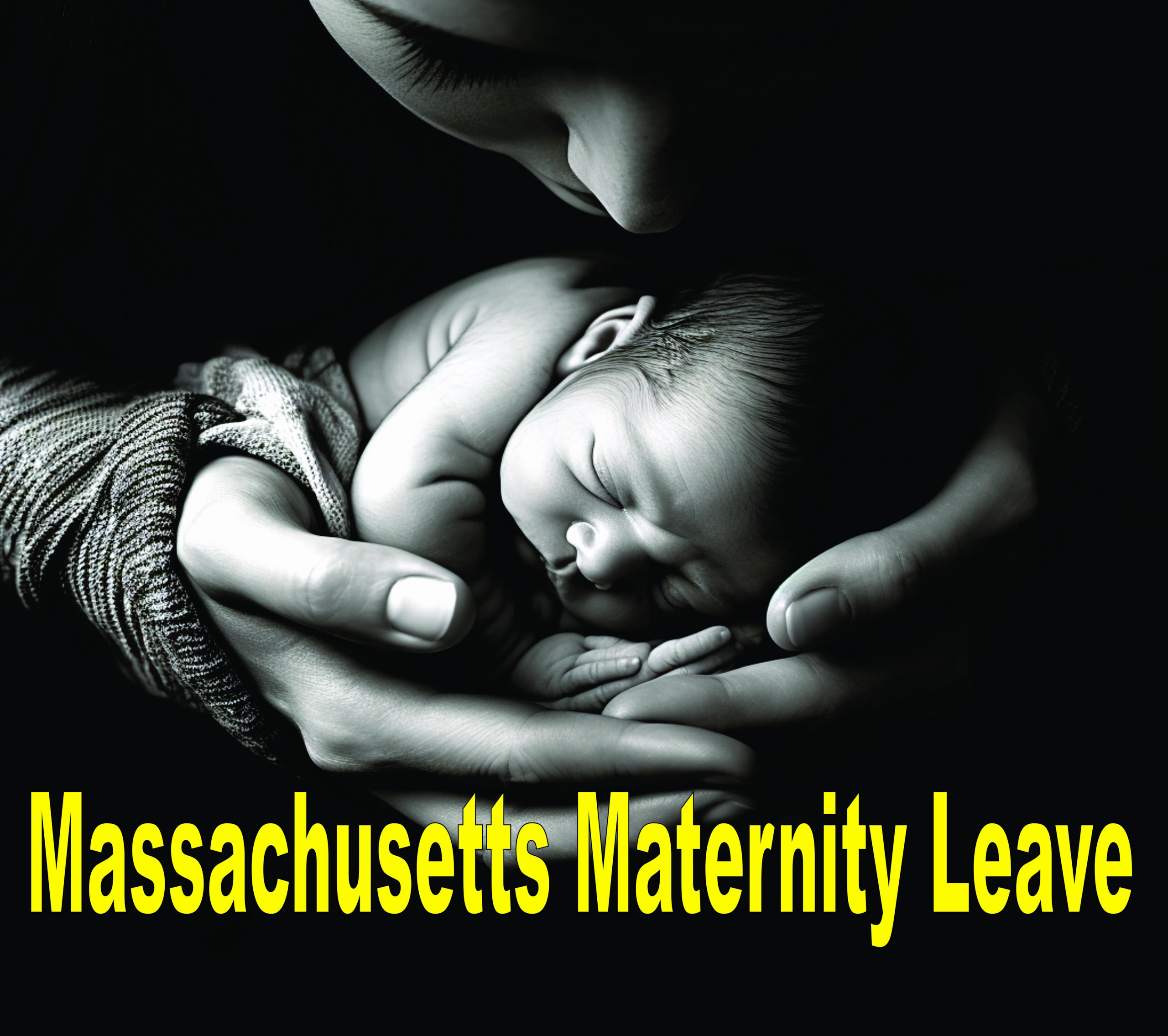Massachusetts Maternity Leave

Last Updated on May 23, 2024 by Kathy
Massachusetts finally has paid family and maternity leave. This state is so determined to pass some form of paid leave, enough signatures were collected for the measure to be on the ballot. The legislature acted instead of waiting for the electorate’s vote, as polling indicated that paid family leave would win. Governor Charlie Baker signed into law the Massachusetts Paid Family and Medical Leave Act on June 28, 2018.
Massachusetts Maternity Leave & PFML
Although the law was effective on January 1, 2019, funding did not begin until July 2019, and benefits started on Jan. 1, 2021. However, some caregiving leave will not be available until July 20, 2021. This article will provide all the information you need about the MA PFML and when it will be implemented.
How many weeks of paid maternity leave do I get in Massachusetts?
For dads and moms, the MA PFML allows for up to 12 weeks of family leave paid to bond with a child. The bill also offers paid family leave for any other life events. It provides up to 12 weeks of paid family leave to bond with a new child (up to 26 weeks for those with health conditions resulting from active duty), and 20 weeks to care for yourself. You can care for yourself if you have medical conditions such as pregnancy, birth, or postpartum recovery. However, the annual leave cap is 26 weeks.
You should also know that there is a one-week waiting period before the leave takes effect. During this time the employer will not pay the employee and the employee would need to use other benefits such as vacation or sick time to be paid.
Who qualifies for paid family leave?
As someone who has personally navigated the Massachusetts Paid Family and Medical Leave Act, I can attest that Massachusetts residents are eligible for paid family leave. Even if you commute to Massachusetts from other states, you can still be eligible for benefits. The key is to work for an employer that contributes to the unemployment insurance fund, which most employers do. I sought advice from Rebecca Pontikes, a highly respected Massachusetts lawyer specializing in workplace discrimination and pregnancy. According to her valuable insights, there are a few exceptions to this rule, such as work/study programs or religious organizations. Keep in mind that if you’re a Massachusetts resident working in another state, you won’t receive benefits because your employer doesn’t contribute to the state’s unemployment insurance fund.
There is also a minimum income requirement in which you should have earned at least $4,700 in the past 12 months. Self-employed people must work at least four consecutive quarters to be eligible for the benefit. In addition, they will need to continue to contribute to the system for three more years. However, they will be eligible for leave during this three-year period.
How much will I be paid?

Massachusetts employees are entitled to 80% of their weekly average wages while on leave. This is up to one-half the state’s current average weekly wage of $1,431.66, of which 50% is $715.83. An employee who earns an average of $715.83 per week will receive half of their weekly average wages, plus the $715.83. The total is capped at $850 per week.
This means that those earning $715.83 per week will receive 80% of their weekly wages. For earnings over $715.83 per week will be compensated with additional wages at 50% capped at $850.
The cap is adjusted each year in line with changes in the state’s average weekly wages to equal 64% of the state’s average weekly income, It is currently $850. The benefit will be adjusted if the average weekly wage in the state rises.
The benefit amount will be adjusted if you are taking part-time leave, such as two days per week or twenty hours per week.
Can I take paid family leave for something other than a new baby?
Yes, the law provides for up to 12 weeks of paid leave to family members with serious health conditions. These benefits will go into effect on July 1, 2021. You can also receive up to 26 weeks of paid family leave for family members whose serious medical condition was caused by active duty military service. For your own serious condition, you can get up to 20 weeks of paid medical leave. You can only take 26 weeks of paid medical leave in one benefit year. This includes any qualifying events. You are still restricted to 26 weeks if you have a baby or care for an injured military member.
Can I take more than 12 weeks off?
As someone who has navigated the Massachusetts Paid Family and Medical Leave Act personally, I can clarify that the maximum amount of paid family leave you can take is 12 weeks. However, there are exceptions if you are taking care of yourself or an injured military member. In such cases, your employer has the option to pay for additional time or offer extra payments. It’s important to note that the state law aligns with the National Family and Medical Leave Act, which also grants 12 weeks of job protection leave.
MA PFML is more comprehensive than FMLA. Only 60% of American workers are eligible for FMLA, and MA PFML may be able to cover you in circumstances where FMLA would not apply. For example, FMLA requires that you have worked for the same employer for a year.
Do I need to use all my leave at once?
You can either use your leave periodically or all at once. The cap is for the whole year, not a 12-month period.
What about my spouse?
As someone who has explored the Massachusetts Paid Family and Medical Leave Act thoroughly, it’s important to note that your spouse will be eligible for benefits if they meet the requirements of the law. However, it’s crucial to understand that one spouse’s eligibility doesn’t automatically guarantee the other’s eligibility. Each individual’s eligibility is determined independently based on the specific criteria outlined in the law.
What if I foster, adopt, or use a surrogate? Are those qualifying events?
Yes, a new child definition includes adoption, foster care, and birth. A child who “arrives” by any other means than childbirth will be covered, even if the child is not officially adopted.
I need to take time off to take care of my family. Which family members are included?
The family members covered are a sibling, spouse, domestic partner, and child; a parent, parent of an employee; a person who was like a parent to the employee; a grandchild or grandparent of the employee.
Massachusetts provides a wide definition of what is considered a child. It could be biological, adopted, foster, stepchild, or a child to which the employee acts as a parent while the child was a minor.
How is the benefit paid for?
Funding methods are divided between employers and employees. It varies slightly for family leave than for medical leave.
Like an insurance policy, employees pay a premium. The cost can be split between employers and employees. Employers can ask employees to pay 100% of the premium, which is deducted from every paycheck. However, for family leave, employers must pay at least 60% of the premium cost.
As someone who has experienced the Massachusetts Paid Family and Medical Leave Act firsthand, I can attest that this law provides much-needed support for employees. Whether you need time off to have a baby, recover from an illness, or care for a loved one, the program offers valuable benefits. Best of all, the cost is minimal – it’s like buying just one Starbucks coffee per week.
It’s important to note that smaller businesses with fewer than 25 employees on their payroll are exempt from paying the employer’s portion of premiums, provided less than half of their workforce is self-employed. However, self-employed individuals are responsible for paying 100% of the premiums. This unique distinction highlights how the program considers different employer sizes and structures.
If my company pays for some portion of leave, can I combine it with MA PFML to receive 100 percent of my salary?
Your employer can decide. Massachusetts pays the first part of paid leave, but employers have the option to “top off” the state’s paid leave option by offering additional time and salary. Employers do not have to offer additional benefits, but any company-specific benefits will be added to the state’s paid leave program.
Farnitano states that his coalition expects companies to use the state benefit to be a baseline but then offer benefits such as 100% income reimbursement for a few weeks or the option of extending the time out of the office. He said that they might offer it for a longer time now that it is more affordable.
If my employer currently offers six weeks of paid leave, and Massachusetts now offers 12, can I combine the two?
I have personally encountered this situation, and I can share that if your employer already provides six weeks of paid leave, you might wonder if you can combine it with the Massachusetts PFML’s 12 weeks. The baseline is indeed the state plan, but employers may choose to offer additional benefits or full salaries. It’s crucial for employers to communicate clearly if their paid leave benefit is extra to the Massachusetts PFML, ensuring that employees understand their total leave entitlement.
Is the leave pay taxed?
It’s important to clarify the tax implications of the leave pay. While the law does not specifically address taxation, it’s generally understood that wage replacement payments, such as unemployment insurance, are subject to taxation by federal and state authorities. This means that parental and family benefits are typically considered taxable income. However, it’s worth noting that benefits like temporary disability insurance or insurance for medical leave may not be taxable if the worker either pays the premiums herself or reports them as income on her tax return.
What do I have to do to get the money? How am I paid?
Let me guide you on how to claim your benefits. To get started, visit the official Massachusetts Department of Family and Medical Leave website. They provide online tools that will help you determine your eligibility and guide you through the application process. Additionally, you can also find helpful information on the state’s Unemployment Insurance page to check for eligibility requirements and other useful resources.
Are there any monetary caps on the benefit annually or during one’s lifetime?
As someone who has closely examined the Massachusetts Paid Family and Medical Leave Act, I can clarify the monetary caps on benefits. The good news is that there is no lifetime limit to the benefits you can receive under the program. However, it’s essential to be aware of the annual cap for these benefits, which currently stands at $850 per week for up to 26 weeks in a benefit year.
Do I still receive my benefits while I’m out?
Similar to FMLA, you can take time off, and your job, and benefits, are protected.
Is my job protected while I’m on leave?
Yes, employees are protected for 6 months from any unlawful retaliation if they use MA PFML during their return to work after such leave. There is no limit on job protection, unlike FMLA. It does not depend on how large the employer’s workforce is. This means that your job is protected regardless of whether your company employs 20 or 20,000 people.
Where do I go if I have more questions?
You can find more information at the Massachusetts Department of Family and Medical Leave website.








